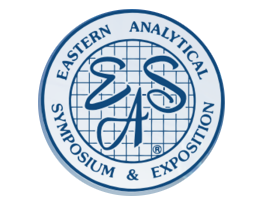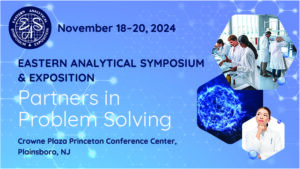Two-Day Course
Date to be announced; 8:30am – 5:00pm
Dr. Michael W. Dong, MWD Consulting, Norwalk, CT
COURSE DESCRIPTION
This intermediate short course will provide the analytical scientist with a clearer understanding and a solid working knowledge of best practices (method development, HPLC operation, and troubleshooting) of HPLC and UHPLC (ultra-high-pressure liquid chromatography). The focus is on pharmaceutical analysis of small molecule drugs. A brief survey of biopharmaceutical, food, environmental, chemical, and bioscience applications is included.
HPLC &UHPLC for Practicing Scientists 1: Fundamentals is the first part of this two-day course. Part 1 and 2 can be combined as a two-day course; a discount will be offered over separately registering for the two one-day courses. (click here for Part 1 course description)
WHO SHOULD ATTEND
Analysts, scientists, researchers, and managers in pharmaceutical and other industries who want to get an updated overview of the best practices of HPLC and UHPLC in pharmaceutical analysis including HPLC method development, operation, and troubleshooting. A basic understanding of chemistry and HPLC with some hands-on experience is assumed.
TOPICS
1. HPLC Applications and an Overview of UHPLC
a. HPLC applications including pharmaceutical, biopharmaceuticals, food, environmental, chemical, and bioseparations
b. FUHPLC overview, perspectives, and benefits: UHPLC concepts, instrumentation, and benefits (fast separations, high-resolution analysis, and rapid method development)
c. Potential issues and how to mitigate (viscous heating, operating nuances, compatibility to existing methods, injection precision, detector sensitivity vs. mixing volumes), method translation from HPLC to UHPLC, transition from HPLC to UHPLC
2. HPLC Method Development and Validation
a. Tradition strategy for HPLC method development and a survey of automated tools and software (DryLab, ACD AutoChrom, and Fusion QbD)
b. 3-pronged template approach for rapid method development
c. Use of a universal generic gradient method for the assay of multiple NCEs and stability-indicating assays with simple adjustments
d. A brief overview of method validation and method transfer with case studies
3. HPLC Operation and Troubleshooting
a. Mobile phase and sample preparation and best practice in HPLC operation
b. Maintenance and troubleshooting guide with case studies
c. Diagnosing and solving problems (pressure, baseline, peak, data performance)
ABOUT THE INSTRUCTOR
Dr. Michael W. Dong is a principal of MWD Consulting focusing on training and consulting on HPLC/UHPLC, method development, and pharmaceutical analysis. He was formerly Senior Scientist at Genentech, Research Fellow at Purdue Pharma, and Senior Staff Scientist at Applied Biosystems/Perkin-Elmer. He holds a Ph.D. in Analytical Chemistry from the City University of New York, and a certificate in Biotechnology from University California of Santa Cruz. He has 120+ publications including a bestselling book on chromatography (HPLC and UHPLC for Practicing Scientists, Wiley). He is an editorial advisory board member of LCGC North America, American Pharmaceutical Review, and Chinese American Chromatography Association.

